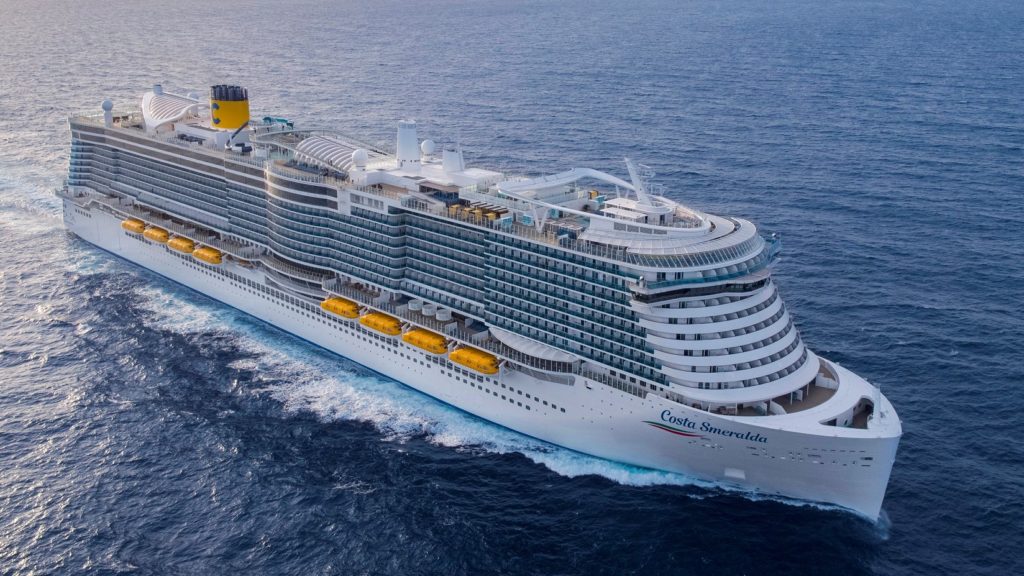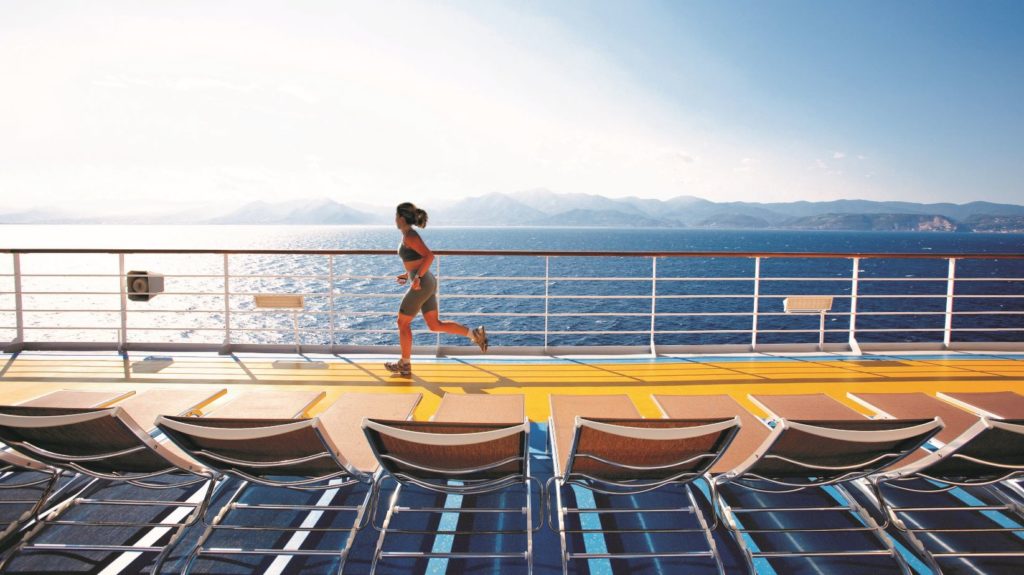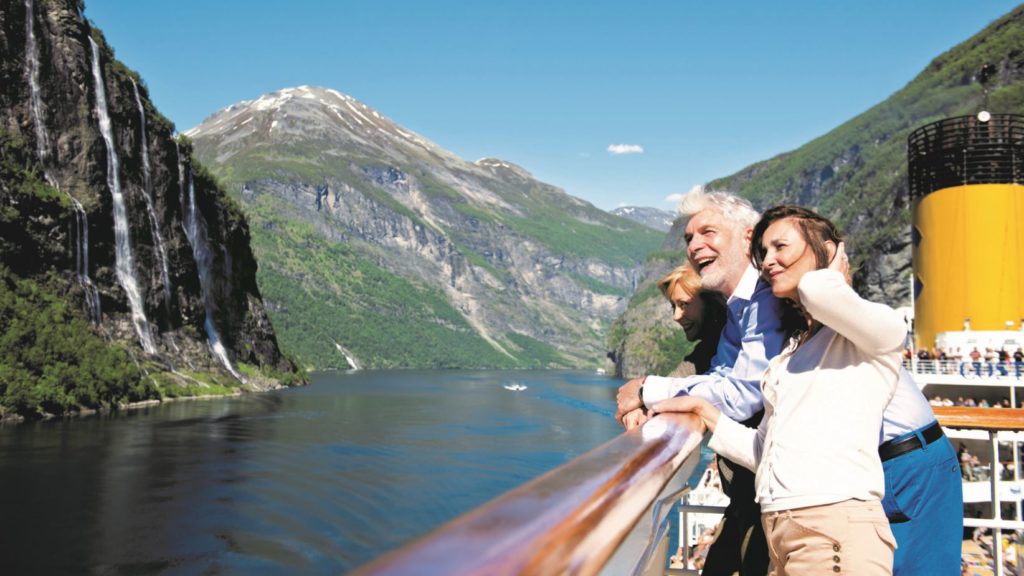Costa Cruises has published its Sustainability Report 2019: “Building the Future Together” to present the achievements of the company towards sustainable and responsible operations, in line with the Sustainable Development Goals (SDGs) of the 2030 Agenda defined by the United Nations to promote responsible development globally.

Costa Cruises‘ 14th Sustainability Report presents the Italian cruise company’s sustainability strategy and master plan, highlighting the main projects and results achieved in 2019. The report aims to mitigate the adverse effects of its impacts and implement concrete solutions in order to create value for all its stakeholders – customers, employees, suppliers and local communities.
“The publication of our Sustainability Report 2019 comes at a very special time, in which we have just responsibly and safely restarted our operations after a long pause.” – said Group CEO, Costa Group & Carnival Asia Michael Thamm. “The report is an opportunity to showcase our tangible projects and the results achieved in 2019, but also to confirm that now more than ever we renew our commitment towards a sustainable development of our business model. We want to continue to guide the transformation of our company and our industry in the coming years, working closely and transparently with all our stakeholders”.
Zero emission cruising
Significant results have been achieved in 2019 by Costa on the path towards decarbonization and emission reduction. Committed to reducing CO2 emissions by 40% by 2020, and 10 years ahead of the targets set by the IMO, in 2019 the company had already reached a reduction of 40% versus 2008.

The arrival of Costa Smeralda, the flagship inaugurated in 2019 and the first ship in the Costa fleet to be powered by LNG, represented a fundamental step towards emission reduction. The arrival in 2021 by its sister ship Costa Toscana, is another concrete testament to Costa’s dedication to environmental sustainability.
With a view to the goal of zero emission cruising, Costa Group is developing studies on new sustainable alternative technologies. Tests are being carried out on the use of shore power when ships are docked, in synergy with ports and the company looks for private-public partnerships to build the infrastructure needed to support the system, as 50% of Costa’s fleet will be ready to use shore power by the end of 2020.
The investments made by Costa on new generation ships and to increase the efficiency of the existing fleet, are in line with Costa’s objective to make ships floating smart cities. This has led to the promotion of circular economy projects on board, an attention to reducing all kinds of waste from food, to water, to energy. Costa has undertaken a number of actions to significantly reduce the use of plastic (-50 tons per year) and to eliminate disposable products. As an example, the production of water on board has progressively increased (76.29%) and has reached 100% on board of Costa Smeralda. Moreover, the company is actively engaged in the fight against food waste and has set its objective to reduce food waste by 50% by 2020, 10 years ahead of the UN 2030 Agenda, while promoting responsible consumption on board.
Costa Cruises Sustainability Report 2019 highlights
The cornerstones of Costa Cruises’ strategy are: minimization of environmental impact; designing together with the community; promotion of sustainable, responsible and shared models.

Minimization of environmental impact
- Achievement a further reduction in CO2 emissions of 8.06% compared to the previous year. This confirms Costa’s commitment (together with Carnival) to attaining a 40% reduction in the fleet’s CO2 emissions by 2020 (some 10 years ahead of the target laid down by the International Maritime Organization). The arrival of the first LNG-fueled ship, Costa Smeralda in 2019, will be soon followed by Costa Toscana in 2021;
- Focus on circular economy projects, such as the short supply chain for the recycling of the glass disposed of on board, which is recycled and returned to the ship in the form of objects that everyone can see and use, namely olive oil bottles in Costa’s restaurants.
- 100% of waste sorted into streams, and a substantial reduction in the use of plastic and the phasing out of single-use plastic items entirely, meaning 50 metric tons less waste each year;
- Reduction of the amount of water wasted during marine operations and gradual increase the proportion produced directly on board, which worked out to 76.29% in 2019 (a 13% year-on-year increase), and campaigns to promote responsible use of water on board, called Stop the Drop to achieve a reduction in per capita consumption on board.
- Focus on the value of food and the promotion of responsible consumption with crew and guests, with the “4GOODFOOD” program and the guest awareness campaign “Taste don’t waste” aimed at ambitious objective of halving foodwaste on board Costa’ ships by 2020, ten years ahead of the United Nations 2030 Agenda.
Also read: 4GOODFOOD, Costa Cruises’ food waste reduction program
Designing together with the community
- With its 4416 port calls (of which 1938 in the Mediterranean), Costa played a crucial role in promoting local tourism, this positive impact translating into average spending of €74.60 per passenger in each European port, with 60% of guests on Costa’s ships saying they intend to return to the cruise destinations;
- Signing of environmental protection agreements such as the ESI (Environmental Ship Index) Implementation Protocol and the Blue Maritime Charter with the port of Marseille, the Genoa Blue Agreement promoted jointly by the Harbor Master’s Offices of Genoa and Savona, and the Blue Flag with the port of La Spezia.
Promotion of sustainable, responsible and shared models
- In 2019 the company provided its workforce with over 1,200,000 hours of training and also further enhanced its employee welfare policies with, for example, incentives for parental leave for both parents and smart working, with a total of 162,000 smart working hours during the year;
- Costa’s employee volunteering program (160 hours in 2019) is an opportunity for personal enrichment and team building while carrying out beneficial projects for the local communities involved;
- Involvement of younger guests in educational games and projects conveying positive messages, such as the Kinder Joy of moving program, involving over 52,000 children aged between 3 and 11 and their families, who took part in 2019 in activities promoting a healthier lifestyle;
- Inclusion projects such as the Costa’s Adagio Tours: this project, a first for the cruise industry, is specially designed for people with disabilities and other guests who prefer excursions at a more leisurely pace;
- Introduction of novel, eco-friendly ways of discovering destinations, such as the Urban Nordic Walking Tour. Guests can take part in projects like #EnjoyRespectVenezia, an awareness campaign launched by the city of Venice in which visitors can discover the iconic city’s hidden treasures. Similarly the Fjord Ranger Programme, an educational project for visitors to the Geirangerfjord UNESCO World Heritage Site (Norway), is aimed at the protection and preservation of the delicate natural heritage of the fjord and the sustainable development of the site;
- The Costa Crociere Foundation, complements the company’s social commitment with 100% of donations invested in over 28 projects for environmental and community support projects for almost 30,000 beneficiaries.
For more information, or to download the full report visit www.costacrociere.it.